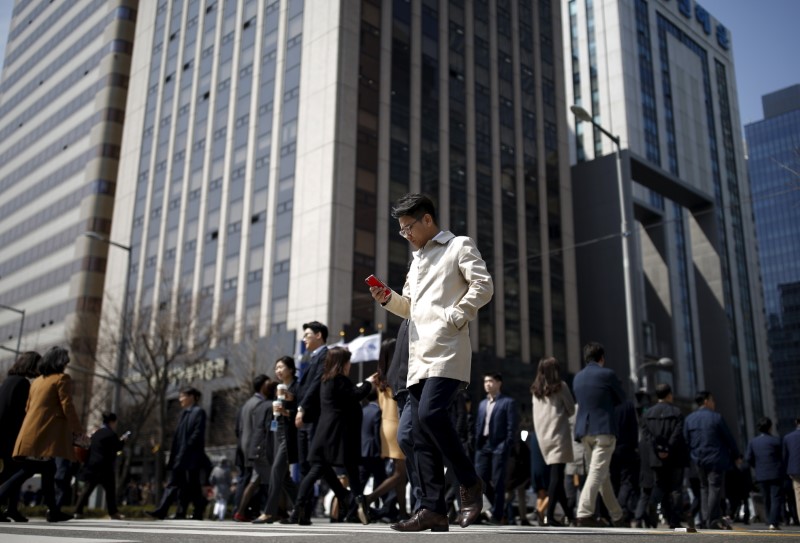By Cynthia Kim
SEOUL (Reuters) - South Korea's economy marked its worst quarterly performance since 2008 in October-December as weakness in car exports and construction overshadowed strength in consumption and public spending, revised central bank data showed on Wednesday.
Gross domestic product declined 0.2 percent in the fourth quarter, matching advance estimates.
That compared to a revised 1.5 percent rise in the third quarter of 2017 and was a big step down from the blistering pace seen in the first half of last year.
Construction investment fell by 2.3 percent on-quarter, while private spending and government expenditure increased 1.0 percent and 0.5 percent from three months earlier, respectively.
From a year earlier, South Korea's economy grew 2.8 percent in the October-December period, the Bank of Korea data showed, missing the advance estimate of 3 percent.
The result is a disappointment for the bank, which raised its base rate by 25 basis points in November, the first tightening in six years.
Inflation will have to pick up considerably before the central bank takes policy interest rates higher.
The Bank of Korea left its key interest rate unchanged in February, as expected, noting muted inflationary pressures and showing caution amid fears of a global trade war.
The bank expects the economy to expand by 3 percent this year, but that estimate is subject to global demand for South Korean memory chips and other manufactured goods in the face of a feared trade war between the United States and China.
"Domestic demand will probably shine this year and exports will continue their moderate growth," said Lee Sang-jae, economist at Eugene Investment and Securities, noting that increased public spending to create jobs should boost private consumption.
The revised data showed the economy grew by 3.1 percent over the whole of last year, the fastest expansion since it grew 3.3 percent in 2014.
